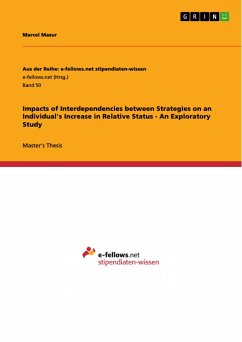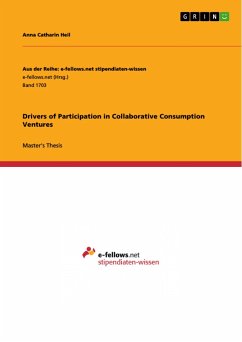Master's Thesis from the year 2011 in the subject Business economics - Offline Marketing and Online Marketing, grade: 1,0, ESCP Europe Business School - Campus London (Institut für Marketing), course: Konsumentenverhalten, language: English, abstract: PURPOSE:The various efforts of individuals to raise their status as recognised by others have previously been understood as measures independent from one another. This thesis critically questions this rigid perspective and points out reasons that would lead one to conclude interdependencies between the individual measures. The thesis points out that individuals use the interdependent measures in a strategic way depending on their economic (e.g. income, property) and social (e.g. education, upbringing) circumstances and combine them with one another according to certain criteria in order to raise their relative status advantage vis-à-vis others.FINDINGS:The results of the study show that individuals use various combinations of strategies to raise their status depending on their economic and social circumstances. The results were applied to the model of Pierre Bourdieu (1984) with a differentiation between economic and cultural capital. The differentiation between directly existing and externally signalled economic and cultural capital at times showed significant differences. The individuals, depending on the reference group, their existing status norms as well as their demographic circumstances, signalise the strategy used to a varying degree. The predominant norms in the various reference groups prompt individuals to signalise strategies to promote their status externally to a varying degree. Since status is a relative construct, individuals can only raise their status through strategies that they also signalise externally.Based on these findings, various clusters were defined that individuals, depending on their directly existing capital in the sense of Bourdieu, allocate to the specific situation. With the integration of the twelve defined strategies into Bourdieu's model, it becomes clear that individuals, depending on their economic and cultural capital, select from a certain set of strategies to increase their status. The defined strategies were classified into short-term strategies with no influence on the existing economic and cultural capital as well as into long-term strategies with an influence on the existing economic and cultural capital. This helps to transform Bourdieu's model from a static, situation-specific model into a dynamic, cross-situation model.








